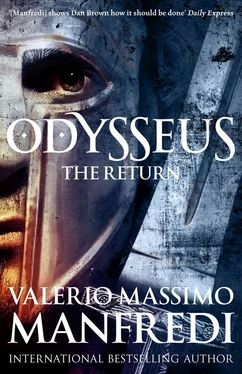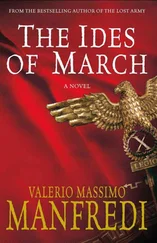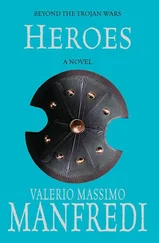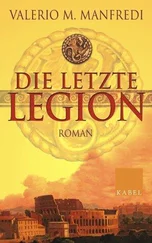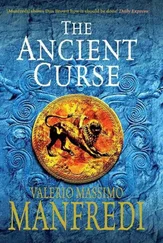Corinth — city on the isthmus that connects the Peloponnese to mainland Greece, between the Gulf of Corinth and the Saronic Gulf.
Crete — island ruled by Idomeneus.
Cythera — island in the south of the Peloponnese, near Cape Malea.
Dardania — region of north-western Anatolia, near Troy, kingdom of Anchises, ally of Troy.
Dulichium — island, part of the kingdom of Odysseus.
Elis — region of the north-western Peloponnese.
Ephyra — place in Aetolia where an entrance to Hades was located.
Euboea — the biggest island of Greece, after Crete.
Eurotas — the river of Sparta.
Gythium — port of Sparta on the Laconian Gulf.
Haemos, Mount — mountain chain in the far north, where storm winds were said to originate. Lately identified with the Carpathians.
Hypereia — ancestral homeland of the Phaeacians.
Hypoplacian Thebes — city south of the Troad, ruled by Eetion, ally of Troy.
Iberia — modern Spain.
Ida, Mount — mountain south of Troy.
Ilium — the ancient name of Troy.
Iolcus — city of Thessaly, ruled by Pelias, port of the Argonauts.
Ismarus — city in the land of the Ciconians.
Ithaca — island in the Ionian sea, ruled by Odysseus, and Laertes before him.
Knossos — capital of Crete.
Laconian Gulf — the gulf between Cape Malea and Cape Tainaron.
Lemnos — island in the north Aegean sea.
Leucas — island, part of the kingdom of Odysseus.
Locris — region in western Greece, homeland of Ajax Oileus.
Malea — cape in the south-east of the Peloponnese, notoriously difficult and dangerous to navigate.
Messenia — kingdom of Nestor in the south-western Peloponnese.
Mycenae — city of Argolis ruled by Agamemnon, after Eurystheus and Atreus.
Nemea — city of Argolis where Hercules killed the Nemean lion.
Neritus, Mount — the tallest mountain of Ithaca.
Olympus, Mount — mountain in northern Thessaly, said to be the abode of the gods.
Ossa, Mount — mountain in Thessaly, said to be the abode of the centaurs.
Othrys, Mount — mountain in Thessaly near Phthia, the city of Achilles.
Parnassus, Mount — mountain in Phocis believed to be the abode of Apollo and the muses.
Pelion, Mount — mountain in Thessaly where the pine tree used to make the keel of the Argo was cut down.
Peloponnesus — the Peloponnese, the southern part of Greece.
Phasis — river in Colchis.
Pherai — city in Thessaly, ruled by Admetus.
Phocis — region in south central Greece.
Phthia — city of Thessaly ruled by Peleus father of Achilles, famous for its valorous warriors, the Myrmidons.
Pylos — main city of Messenia, ruled by Nestor.
Rhoetean — promontory of the Troad, where the tomb of Great Ajax was located.
Salamis — small island near Attica, ruled by Telamon, Great Ajax’s father.
Same — island, part of the kingdom of Odysseus, probably modern Cephalonia.
Scamander — one of the two rivers of Troy.
Scheria — island of the Phaeacians.
Scyros — island ruled by Lycomedes.
Simoeis — one of the rivers of Troy.
Skaian Gate — the gates of the Trojan citadel, built to be unassailable.
Sounion — southern cape of Attica.
Sparta — city of Laconia, also called Lakedaemon, ruled by Menelaus.
Stygia — swamp in Hades.
Tainaron — cape of the central peninsula in the Peloponnese.
Taygetus, Mount — mountain in Laconia, west of Sparta.
Tenedos — small island near Troy where the Achaian fleet hides while awaiting the signal for the assault on Troy.
Thebes — city of Boeotia, ruled by Oedipus.
Thermodon — river in northern Anatolia, bordering the territory of the Amazons.
Thesprotia — kingdom of Autolykos, grandfather of Odysseus, in western Greece.
Thessaly — region of north-eastern Greece.
Thrace — region of eastern Greece, north-west of Troy.
Tiryns — city of Argolis, near Mycenae.
Trinacria — land of Helios the sun god.
Troad — region of Troy.
Troy — city of the Troad which controlled access to the Dardanelles, capital of the powerful kingdom of Priam, also known as ‘Ilion’ (‘Ilium’ in Latin), and ‘Villusa’ in Hittite texts. Identified by Schliemann and Blegen with the ruins on the hill of Hissarlik in Turkey, recently confirmed by the excavations of the late Manfred Korfmann. Ruled by Priam, it was besieged for nine years by the Achaians and finally fell thanks to the stratagem of the Trojan Horse.
Zacynthus — island, part of the kingdom of Odysseus.
